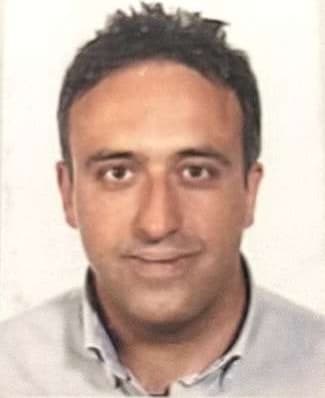Studying at the University of Verona
Here you can find information on the organisational aspects of the Programme, lecture timetables, learning activities and useful contact details for your time at the University, from enrolment to graduation.
Academic calendar
The academic calendar shows the deadlines and scheduled events that are relevant to students, teaching and technical-administrative staff of the University. Public holidays and University closures are also indicated. The academic year normally begins on 1 October each year and ends on 30 September of the following year.
Course calendar
The Academic Calendar sets out the degree programme lecture and exam timetables, as well as the relevant university closure dates..
| Period | From | To |
|---|---|---|
| I semestre (Lingue e letterature straniere) | Sep 27, 2021 | Jan 8, 2022 |
| Annuale (Lingue e letterature straniere) | Sep 27, 2021 | May 28, 2022 |
| II semestre (Lingue e letterature straniere) | Feb 14, 2022 | May 28, 2022 |
| Session | From | To |
|---|---|---|
| ESAMI LINGUE - sessione invernale | Jan 10, 2022 | Feb 12, 2022 |
| ESAMI LINGUE - sessione estiva | May 30, 2022 | Jul 23, 2022 |
| ESAMI LINGUE - sessione autunnale | Aug 29, 2022 | Sep 24, 2022 |
| Session | From | To |
|---|---|---|
| LAUREE LINGUE - sessione autunnale (a.a. 2020-2021) | Nov 8, 2021 | Nov 13, 2021 |
| LAUREE LINGUE - sessione straordinaria (a.a. 2020-2021) | Mar 28, 2022 | Apr 2, 2022 |
| LAUREE LINGUE - sessione estiva (a.a. 2021-2022) | Jul 11, 2022 | Jul 16, 2022 |
Exam calendar
Exam dates and rounds are managed by the relevant Foreign Languages and Literatures Teaching and Student Services Unit.
To view all the exam sessions available, please use the Exam dashboard on ESSE3.
If you forgot your login details or have problems logging in, please contact the relevant IT HelpDesk, or check the login details recovery web page.
Should you have any doubts or questions, please check the Enrollment FAQs
Academic staff
 daniele.caccin2@unibo.it
daniele.caccin2@unibo.it
 silvia.cavalieri@univr.it
silvia.cavalieri@univr.it
 piero.costaleon@univr.it
piero.costaleon@univr.it
 elisa.dallarosa@univr.it
elisa.dallarosa@univr.it
 wenwen.huang@univr.it
wenwen.huang@univr.it
 neliana.orlandi@univr.it
neliana.orlandi@univr.it
 sara.paolini@univr.it
sara.paolini@univr.it
 elena.rango@univr.it
elena.rango@univr.it
 cecilia.sideri@univr.it
cecilia.sideri@univr.it
 tania.triberio@univr.it
tania.triberio@univr.it
Study Plan
The Study Plan includes all modules, teaching and learning activities that each student will need to undertake during their time at the University.
Please select your Study Plan based on your enrollment year.
1° Year
| Modules | Credits | TAF | SSD |
|---|
German literature and culture 1
German literature and culture 1
2° Year activated in the A.Y. 2022/2023
| Modules | Credits | TAF | SSD |
|---|
English literature and culture 2
French literature and culture 2
German literature and culture 2
Spanish literature and culture 2
English literature and culture 2
French literature and culture 2
German literature and culture 2
Spanish literature and culture 2
Geography of communication and international trade
Italian literature and culture
Modern and Contemporary Economic History
Theory and Techniques of communication
3° Year activated in the A.Y. 2023/2024
| Modules | Credits | TAF | SSD |
|---|
Comparative and European Public law
Principles of international marketing
| Modules | Credits | TAF | SSD |
|---|
German literature and culture 1
German literature and culture 1
| Modules | Credits | TAF | SSD |
|---|
English literature and culture 2
French literature and culture 2
German literature and culture 2
Spanish literature and culture 2
English literature and culture 2
French literature and culture 2
German literature and culture 2
Spanish literature and culture 2
Geography of communication and international trade
Italian literature and culture
Modern and Contemporary Economic History
Theory and Techniques of communication
| Modules | Credits | TAF | SSD |
|---|
Comparative and European Public law
Principles of international marketing
| Modules | Credits | TAF | SSD |
|---|
Legend | Type of training activity (TTA)
TAF (Type of Educational Activity) All courses and activities are classified into different types of educational activities, indicated by a letter.
English literature and culture 2 [CInt] (2022/2023)
Teaching code
4S002910
Teacher
Coordinator
Credits
9
Also offered in courses:
- English literature and culture 2 [Tur] of the course Bachelor's degree in Languages and Cultures for Tourism and International Commerce
Language
English
Scientific Disciplinary Sector (SSD)
L-LIN/10 - ENGLISH LITERATURE
Period
I semestre (Lingue e letterature straniere) dal Sep 26, 2022 al Dec 23, 2022.
Learning objectives
The course, taught in English, aims to provide students with an introduction to British literature from the Renaissance to late Romanticism, focusing on some of the most representative works. The course also aims to introduce the main critical approaches and the main features of literary genres. The overall goal of the course is to provide students with a good level of knowledge of literary history (in terms of historical context, texts, genres, movements and authors) and to develop their critical skills for analysis, argumentation and exposition in English, in relation to various typologies of literary texts in their historical-cultural context. At the end of the course, students will be able to: - analyse the set texts and place them in their respective historical-cultural contexts; - describe the texts in a structured and informed way, taking into account literary conventions and applying an informed critical approach; - discuss literary topics in English in a clear and consistent way.
Prerequisites and basic notions
The exam can be taken only after having passed the English Literature and Language courses of the first year.
Program
Questions of Time and Place in Shakespeare’s The Winter’s Tale and The Tempest
The course will analyse two of Shakespeare’s late plays: The Winter’s Tale and The Tempest. We will tackle issues such as journeys in literature and drama, textual migrations and intertextuality, representations of ‘otherness’, gender and genre discourses, metatheatricality. Such themes will be dealt with by exploring the Jacobean historical and cultural context, but also through modern and contemporary adaptations of those two romances.
There are no differences between the programme for attending students and the one for non-attending students. Attending and non-attending students alike are required to do all the readings indicated below.
All texts in the syllabus are compulsory.
If a text is signalled as “optional”, this means that the text can be used to further or facilitate one’s study, but that text is not compulsory.
Further teaching material will be available for download from the Moodle repository.
Further bibliographical instructions and clarifications about the exam will be provided at the beginning of the lectures.
Language: the course will be entirely in English.
Exclusively the editions of the primary texts indicated below will be admitted; please bring the texts in class.
Reference texts:
a. Primary texts (compulsory):
- William Shakespeare, The Winter’s Tale, ed. by John Pitcher, London: Arden Shakespeare (Bloomsbury), 2010.
- William Shakespeare, The Tempest, ed. by Virginia Mason Vaughan and Alden T. Vaughan, revised edition, London: Arden Shakespeare (Bloomsbury), 2011.
b. Secondary texts (compulsory):
- Michael D. Bristol, “In Search of the Bear: Spatiotemporal Form and the Heterogeneity of Economies in The Winter's Tale”, Shakespeare Quarterly, Vol. 42, No. 2, 1991, pp. 145-67.
- Jerry Brotton, “'This Tunis, sir, was Carthage': Contesting Colonialism in The Tempest”. In Post-Colonial Shakespeares, edited by Ania Loomba and Martin Orkin, New York: Routledge, 1998, pp. 23-42.
- Mary Ellen Lamb, “Virtual Audiences and Virtual Authors: The Winter's Tale, The Tempest, and Old Wives' Tales”. In Staging Early Modern Romance: Prose Fiction, Dramatic Romance, and Shakespeare, ed. by Mary Ellen Lamb and Valerie Wayne, New York: Routledge, 2009, pp. 122-42.
- Virginia Mason Vaughan, “The Critical Backstory: ‘What’s Past is Prologue’”. In The Tempest: A Critical Reader ed. by Virginia Mason Vaughan and Alden T. Vaughan, Arden Shakespeare (Bloomsbury), 2014, pp. 13-38.
b1. Optional secondary texts:
- Catherine Belsey, “Parenthood: Hermione’s Statue”. In Catherine Belsey, Shakespeare and the Loss of Eden, Houndmills, Macmillan, 1999, pp. 85-128.
- Silvia Bigliazzi and Lisanna Calvi (eds), Revisiting The Tempest: The Capacity to Signify. Houndmills, Palgrave, 2014.
- Richard Proudfoot, “Verbal Reminiscence and the Two-Part structure of The Winter’s Tale”, Shakespeare Survey Vol. 29, 1976, pp. 67-78.
c. Handbook (obligatory):
For the section on the history of literature (from the sixteenth century to the Enlightenment), students are expected to study:
- Andrew Sanders, The Short Oxford History of English Literature (Oxford University Press, 2004 - third edition): chapters 3 (“Renaissance and Reformation: Literature 1510-1620”), 4 (“Revolution and Restoration: Literature 1620-1690) and 5 (“Eighteenth-Century Literature 1690-1780”).
TEACHING MATERIAL
Students will be able to download additional teaching material (such as handouts, texts, pictures, etc) provided in class from the MOODLE platform by the end of the course. This additional teaching material does not replace, but supplements the compulsory reading and study of the primary and secondary texts (to be read in their entirety), of the handbook for the history of literature section, as listed under the section REFERENCE TEXTS.
Bibliography
Didactic methods
The course consists of a series of lectures which foresee the active involvement of the students. A written calendar of the topics that will be dealt with will be circulated in class at the beginning of the course. Lectures will be held in English.
If you need to isolate because you test positive for Covid, please contact the teacher to arrange for supplementary material.
Learning assessment procedures
Knowledge acquisition will be evaluated through an oral exam, which will consist in a discussion of the topics dealt with during the course. There will not be differences between the exam of attending students and the one of non-attending students.
Evaluation criteria
Knowledge acquisition wishes to assess the student’s:
1) knowledge of the history of English literature from the Renaissance to the eighteenth century;
2) understanding of the primary texts in the syllabus, setting them in their historical and cultural context;
3) acquisition of a suitable critical methodology for the analysis of texts and contexts;
4) skills in analysing texts and ability to discuss and argue one’s thesis in English.
Criteria for the composition of the final grade
The final mark will result from the average of the grades assigned according to the four criteria described above.
Exam language
English
Type D and Type F activities
Nei piani didattici di ciascun Corso di studio è previsto l’obbligo di conseguire un certo numero di CFU di tipologia D e di tipologia F.
CFU D (attività a scelta dello studente)
I CFU D possono essere acquisiti mediante:
- insegnamenti non obbligatori nel proprio piano didattico (previa approvazione del Presidente del Collegio didattico per insegnamenti non selezionabili in autonomia)
- attività accreditate dal Collegio didattico
- competenze linguistiche (diverse o ulteriori) rispetto a quelle obbligatorie
- tirocini o stage
- TALC (competenze trasversali).
Competenze trasversali TALC
Nota bene: i corsi TALC sono riconosciuti solo come CFU D.
Il numero di CFU D va calcolato complessivamente sull’intero triennio/biennio e non è legato all'annualità.
CFU F
I CFU F sono solitamente relativi ad abilità informatiche, competenze linguistiche, stage e tirocini e ulteriori attività formative accreditate in questa tipologia dal Collegio Didattico.
Nel corso di laurea in Lingue e culture per il turismo e il commercio internazionale sono previste le seguenti tipologie:
- 3 CFU per terza lingua (livello B1)
- 3 CFU per informatica
- 6 CFU per stage obbligatorio.
Le competenze informatiche possono essere acquisite attraverso:
- il superamento della prova pratica presso le aule informatiche di Ateneo,
- la frequenza dei corsi attivati da scuole e centri accreditati dall’AICA (Associazione Italiana per l’Informatica e il Calcolo Automatico) o riconosciuti dalla Provincia e dalla Regione e superamento della relativa prova finale. Le domande per il riconoscimento delle competenze informatiche acquisite precedentemente vengono esaminate dalla Commissione per il riconoscimento delle Competenze Informatiche.
Le attività di stage sono finalizzate a far acquisire allo studente una conoscenza diretta in settori di particolare utilità per l’inserimento nel mondo del lavoro e per l’acquisizione di abilità specifiche d’interesse professionale.
Documents and news
-
 Domanda di riconoscimento crediti su certificazioni esterne di abilità-competenze informatiche
(pdf, it, 524 KB, 16/06/21)
Domanda di riconoscimento crediti su certificazioni esterne di abilità-competenze informatiche
(pdf, it, 524 KB, 16/06/21)
| years | Modules | TAF | Teacher |
|---|---|---|---|
| 1° 2° 3° | Introduction to robotics for humanities students | D |
Paolo Fiorini
(Coordinator)
|
To discover all the teaching activities accredited by the foreign teaching college click here
Career prospects
Module/Programme news
News for students
There you will find information, resources and services useful during your time at the University (Student’s exam record, your study plan on ESSE3, Distance Learning courses, university email account, office forms, administrative procedures, etc.). You can log into MyUnivr with your GIA login details: only in this way will you be able to receive notification of all the notices from your teachers and your secretariat via email and soon also via the Univr app.
Student login and resources
Gestione carriere
Assegnazione tutore
Attività accreditate D/F
Calendario didattico dettagliato
Cambio lingua curriculare
Competenze informatiche
Competenze linguistiche (prima e seconda lingua)
Competenze linguistiche in triennale (terza lingua CFU F)
Compilazione del piano didattico
Corso di Lingua portoghese
Erasmus+ e altre esperienze all'estero
Linguistic training CLA
Presentazione dei corsi di studio e Open day
Graduation
List of theses and work experience proposals
| Stage | Research area |
|---|---|
| PROGETTO MAMBRINO Stage per bibliografia | Various topics |
Saperi minimi
Stage e tirocini
Nel piano didattico della laurea triennale in Lingue per il turismo e il commercio internazionale (L12) è previsto un periodo di stage obbligatorio (CFU 6) in organizzazioni imprenditoriali.
Le attività di stage sono finalizzate a far acquisire allo studente una conoscenza diretta in settori di particolare interesse per l’inserimento nel mondo del lavoro e per l’acquisizione di abilità professionali specifiche.
Le attività di stage sono svolte sotto la diretta responsabilità di un singolo docente presso studi professionali, enti della pubblica amministrazione, aziende accreditate dall’Ateneo veronese.
I crediti maturati in seguito ad attività di stage saranno attribuiti secondo quanto disposto nel dettaglio dal “Regolamento d’Ateneo per il riconoscimento dei crediti maturati negli stage universitari” vigente.
- Tutte le informazioni in merito agli stage per futuri studenti sono disponibili alla pagina Stage e tirocini.
- Tutte le informazioni in merito agli stage per studenti iscritti sono pubblicate in MyUnivr - come fare per - stage e tirocini.
- Tutte le informazioni in merito agli stage per le aziende sono disponili alla pagina Stage e tirocini per azienze.
Ulteriori informazioni al seguente link https://www.univr.it/it/i-nostri-servizi/gestione-carriere-studenti-lingue-e-letterature-straniere/stage-e-tirocini-lingue-e-letterature-straniere

 +39 045802 8409
+39 045802 8409























































